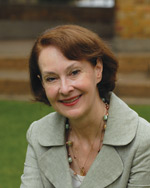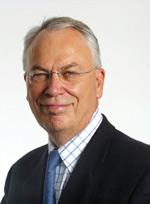Proteus at London Business School: Creative Inspiration - Patricia Hodgins and Nigel Nicholson
Proteus at London Business School offers executive training that foregrounds creative responses to challenges. Programme director Patricia Hodgins and programme leader Nigel Nicholson tell CEO about the value of taking a different perspective.
In an activity room beneath The Guardian newspaper’s new London offices, 19 barefooted business leaders sketch crayon illustrations to a rhythmic tribal soundtrack. Government officials from Australia and New Zealand, a senior director at the European Commission, a Brazilian CEO and a Spanish finance expert are just a few of the participants called upon to discuss their creations and invite feedback from the group. The mood is open, jovial and shows a complete lack of the self-awareness and hesitancy exhibited when senior executives are forced to undergo tasks removed from their regular purview.
Individually and collectively, the group debates its efforts with clarity and honesty. People are unafraid to discuss themselves and one another openly and without fear of reprisal. The room is culturally diverse and the mood relaxed. This does not feel like your usual leadership programme.
For Nigel Nicholson, programme leader and professor of organisational behaviour at London Business School, this is entirely the point of Proteus. What I am witnessing is day four of a programme that has already included visits to Cambridge University, London Zoo, the City of London and the East End. Learning has been undertaken in primary schools, science labs and art galleries. It is all beyond the traditional boundaries of business education.
We are here to address the creative spirit, using the visual and theatrical arts to interpret themes of personal creativity, leadership and group dynamics. Previous days have focused upon human design, global development and scientific discovery. Tomorrow, the group moves onto transformational leadership and a visit to the National Portrait Gallery. Once the programme has entered its seventh and final day, participants will have heard from biologists, leading academics, entrepreneurs, peace pioneers and computer scientists.
‘The programme was inspired by the contradictory notion that we know more and more and less and less in an increasingly information-intensive and experience-rich world,’ Nicholson explains. ‘We get sucked down the channels of our professions, careers, subcultures and so on. Bringing a diverse group of people together and taking them out of their comfort zones creates synergy and integration on a number of different levels.’
Proteus has been inspiring leaders through creative encounters for nine years and Nicholson firmly believes no other programme tackles the same themes and challenges in such a progressive way. ‘Science, art and leadership are the three main transforming forces that lie at the heart of the Proteus programme,’ he says.
‘The mission here is transformational. How can we cultivate new ways of looking at and understanding the world? Providing people with the opportunity to synthesise different kinds of experience provides the tools to seek out new directions.’ ‘Tools’ is a particularly apt description of what the programme seeks to achieve. Unlike numerous other leadership programmes, Proteus does not seek to prescribe any overbearing mantra or dogma. Instead, Nicholson and his team provide the forum and stimuli that enable participants to pose their own questions and cultivate personalised answers.
‘The process is extractive and we want people to take from it what they want,’ Nicholson explains. ‘What we offer is so rich that we expect people to take different things. Many people have the psychological and vital energies to engage in this task, but are sometimes lacking in material: experience, exposure, space, freedom, inspiration. That’s what we provide and, while you can go out and take your pick from any number of sophisticated strategy programmes, nothing like this exists anywhere else. We know this is the most innovative programme out there and it is for leaders who want that kind of inspiration.’
But that will almost certainly not be all business leaders. While the diversity of the group I witness is astounding, a common thread runs throughout its members. ‘They arrive from different trajectories,’ Nicholson tells me, ‘but all are addressing the themes of renewal, a need and desire to make interesting and difficult choices about their lives, and many are answering questions about legacy. Participants must be seekers. There’s no ultimate truth or absolute philosophy here, we’re not trying to engender a single world view, but people must come in the spirit of exploration. If you have that, you’ll get a lot from this programme.’
In order to ensure that all members of a group (capped at 25) are a good fit for the challenges that lie ahead, London Business School undertakes an extensive screening process. Applicants are interviewed at length and must articulate why the programme appeals and exactly what they hope to take away from it. Conversely, the school is upfront about what the programme entails and guide those for whom it does not appear a good fit towards more suitable choices.
‘Our literature, marketing and PR is driven towards finding the right people and explaining what we are,’ programme director Patricia Hodgins, the woman responsible for the bulk of pre-embarkation interviews, tells me. ‘Then when I talk to people who’ve seen the literature, it’s really up to me to decide whether they’re up to it. The great thing for those that make it onto the programme is that we’ve already had some genuinely in-depth conversations and know a great deal about one another before the sessions have started.
‘People are often drawn to the programme by the ideas of renewal and reflection. They know they’re in a space of possibility and they’re natural risk takers. That’s something I need to hear. This year’s age range runs from 38 to 58. All these people are at a moment of transition in their lives, but the context can be wildly different and the results even more so. A senior director from the financial services industry who was on the programme three years ago took off for 12 months to coach football in a remote Brazilian village.
Others simply return to their organisations with renewed vision and clarity of focus. People find their own answers.’ Nicholson chuckles at the memory of a samba inspired finance specialist, but is at pains to stress that such a dramatic personal life choice is atypical of the results Proteus will generally produce.
‘It’s certainly not complete naval gazing,’ he explains. ‘We spend so much time looking outwards: Does globalisation limit the sovereignty of nations? Does that matter? Can human beings save their environment? Facing down the huge challenges we face as a species.
‘This is big picture stuff, but it is also true in the context of our individual lives: self-knowledge gives you control and only the system that knows itself can control its own destiny. Whether that system is the individual or a mega multinational organisation, the sentiment is equally applicable.’
There is an extensive biography element to the programme, with participants mapping their life journeys at the beginning of the programme and the final day being dedicated to exploring that lifeline and discussing future destinations and goals. These discussions take place both within the group and on a one-toone basis, but Nicholson and Hodgins are also in constant dialogue with participants throughout the week.
‘It’s been non-stop since we got here,’ says Mark, a senior manager at a Dutch life sciences and materials sciences company. ‘The passions and interests that bring out our creativity will be different for everyone and we are learning so much about ourselves and one another. Also, those two things are not mutually exclusive. Hearing from other people from an array of backgrounds is invaluable in formulating one’s own opinions. Individuals from differing perspectives take you out of your comfort zone. In life, we’re often bad at that: we gravitate towards those most similar to ourselves.
‘This is a great starting point, but it must now be about what we are actually going to do to put the knowledge and insight gained into tangible practice. That is the real challenge. I know people in the banking sector who detached themselves from that world and saw the crash on the horizon. We hear lots of similar stories, but nobody in the top ranks actually did anything about it. Awareness means nothing if you don’t put what you’ve learnt into action.’
And self-knowledge is fundamental for implementing change. ‘A good leader needs to be able to give an authentic account of why they are where they are and why they do what they’re doing,’ Nicholson says. ‘Some have never had to practice that, but we believe this experience enriches the story and helps them have the impact they want to have. The people you see here are selected by us, but they’re also strongly self-selected. They’ve done a lot of research before coming here and know what’s on offer is unique.’
My conversation with Richard, a senior director at the European Commission and, oddly for a UK-based programme, the only Brit in the group, is a case in point. ‘I’m not really the sort of person who goes on management programmes,’ he begins by telling me. ‘I doubt I’d have gone on any other, but this one just seemed right.’ So it was recommended to you? ‘No, I must have read hundreds of brochures. I had an idea of what I was looking for and something about Proteus clicked.’
Richard seems the personification of a Proteus attendee and Nicholson believes that the fallout from the collapse of the financial markets may see an increasing number of people travelling a similar trajectory. ‘It seems clear to me that solely pursuing shareholder value is a disastrous strategy,’ he begins. ‘If that’s your company’s mission, you’re bound to fail on some level. People are reappraising the concept of value.’
Faced with a re-evaluation of business practices, traditional presumptions of leadership have had to change also. Managers face new challenges and their approach must be open to creative responses. The attendees of the Proteus programme can vouch that sometimes the path to a solution is not always the most obvious.


